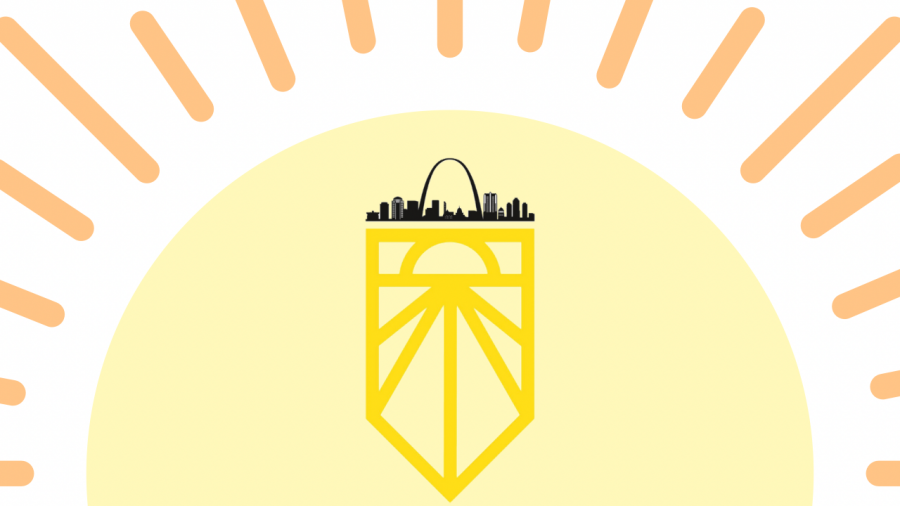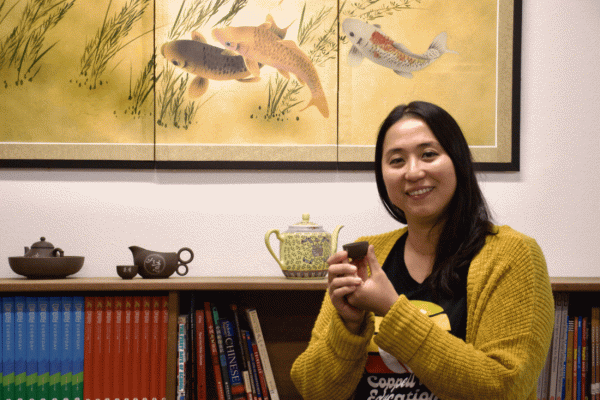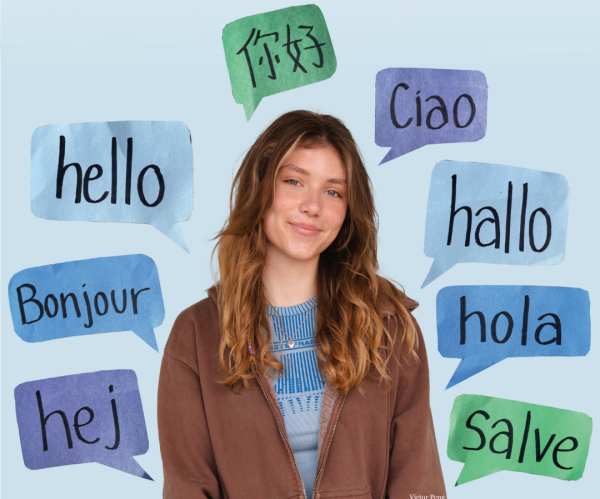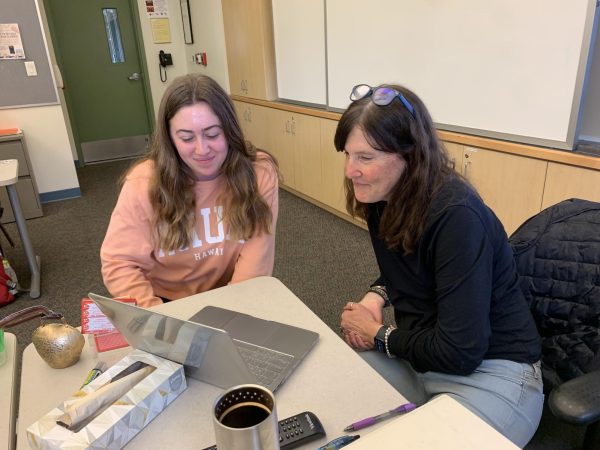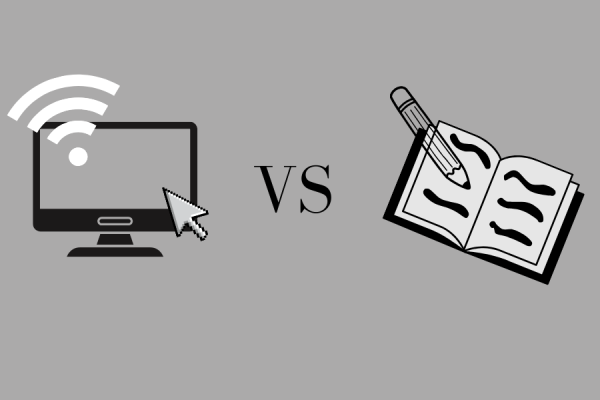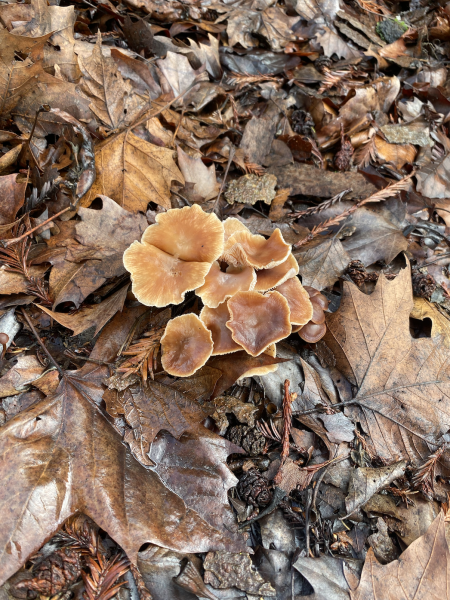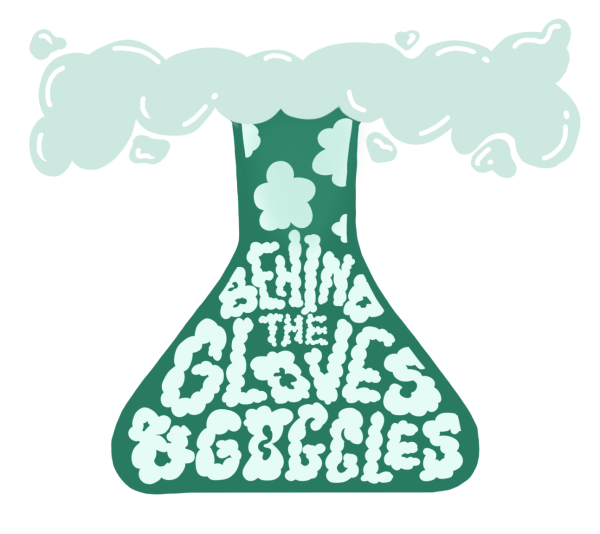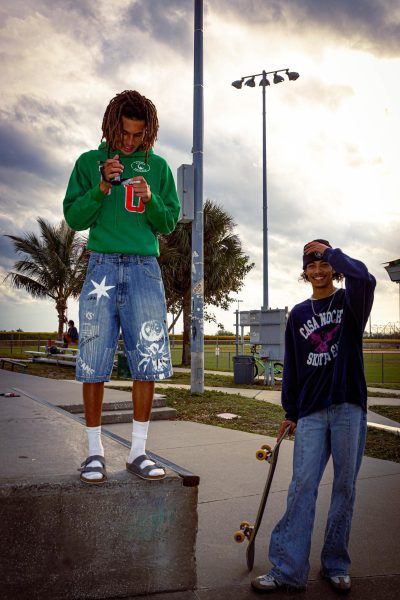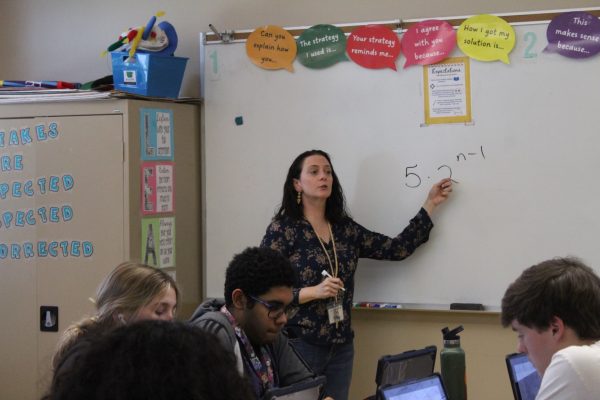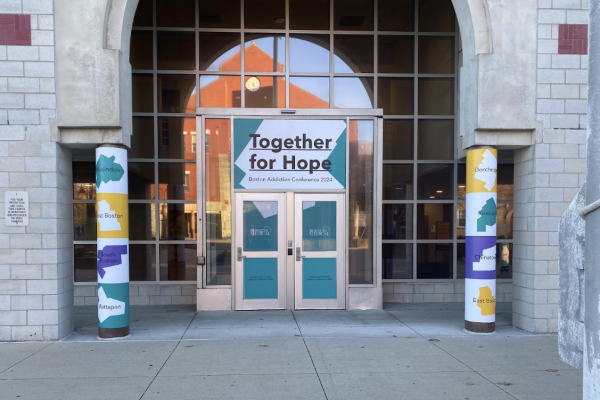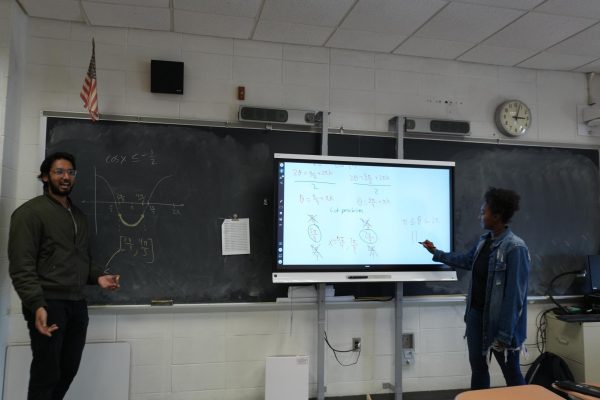The Sun Is Rising on the Sunrise Movement
The Sunrise Movement unites against a Common Enemy that threatens all of their futures—Climate Change.
The Sunrise Movement is best known nationwide for their efforts to pass the Green New Deal. This is a motion that works against two key injustices at the same time: climate change and inequality.
September 30, 2020
As, for us, the sun dawns on a new day, for members of the Sunrise Movement’s St. Louis hub, it dawns on a new movement. Founded in 2017 by Varshini Prakash and Sara Blazevic, the Sunrise Movement and its members have been trailblazers for efforts against climate change in the late 2010s. But over time, the movement has snowballed into much more than that.
“The Sunrise Movement is a youth led climate justice organization,” said Parkway West High School senior, Ulaa Kuziez. “I say climate justice because as a movement we recognize the intersection of different systems of oppression and fight for justice on all fronts, for all people. We use different tactics like direct action and protests to elevate the urgency of climate change, grow participation, and fight for justice.”
The Sunrise Movement is best known nationwide for their efforts to pass the Green New Deal. This is a motion that works against two key injustices at the same time: climate change and inequality. Members of the movement believe that we can’t just tackle environmental problems—we must take on those plaguing our society as well.
Grace Tedder, co-founder of Sunrise STL, said, “We’re calling for a Green New Deal to address the combined crises of climate change and centuries of racial inequity in this country, all while creating millions of good-paying jobs.” She continued that the Deal isn’t its own policy, but “a high level vision of the many policies we need to pass to stop the worst impacts of climate change. The Green New Deal also addresses a lot of issues outside of what is narrowly viewed as climate issues (like healthcare, jobs, racial equity), but this is because they are inextricably linked—the same systems of oppression that led to degradation of the planet have also been harming people.”
She went on to explain the specifics: “The Green New Deal resolution presented in US Congress is based on the 2018 IPCC (Intergovernmental Panel on Climate Change) report, that showed that warming over 1.5 degrees Celsius will cause very catastrophic effects, and that to achieve that goal, we must cut global greenhouse gas emissions by 40-60% by 2030, and reach net zero by 2050 (though since the US emits so much, nationally we really need to be reaching net zero well before 2050).”
Sunrise provides numbers and data to back up their problems and solutions. They don’t just tell the people in power how climate change disproportionately affects minorities—they make an effort to show them.
Sunrise is based around the belief that a lot of the things that we don’t intuitively tie to the environmental crisis are actually a result of it. The same systems keeping poor people poor and rich people rich are the ones harming our planet. The Green New Deal calls for green solutions, yes, but it deals with issues more complex than that—issues that have been ignored in deals past.
“We are working on building more community partnerships and organizing an upcoming action to call out our local governments failures to divest from police and criminalization of poverty and invest in actual public safety and addressing pressing issues like climate change, social services, etc, and present our vision for St. Louis,” said Tedder.
These solutions are working in the best interest of the city, as well as the Earth. The organization is currently trying to achieve Lydia Krewson—the mayor of St. Louis’—removal from office. This began shortly after Mayor Krewson exposed the identities of protestors marching to defund the police on a Facebook livestream. Her behavior led to another demonstration outside her house, where many St. Louisans showed up to call for her resignation.
These are small steps of a bigger plan taking place in the city.
“We hosted a Green New Deal Town Hall, in which we collectively envisioned what a Green New Deal could look like in [St.] Louis,” Kuziez said. These town halls have taken place across the nation, but Sunrise STL made it local. The Green New Deal is not only possible, but happening.
Real results are being seen in real time. Crises such as global warming may seem bigger than us at times, and we may come to believe that they are not community problems. But they’re closer to home than you think. This past summer, Sunrise STL focused its efforts on electing Cori Bush to Congress in Missouri’s 1st congressional district.
“It was the first race we’ve engaged in here locally. We phonebanked, knocked doors and did a lot of work on social media, in addition to securing a national endorsement,” said Tedder. Bush is currently the Democratic nominee for the seat, and the final election will be held on Nov. 3. She is running against Republican candidate Anthony Rogers.
As Tedder mentioned, it took hard work and continued dedication to get her ahead on the ballot. When knocking door-to-door went out of style as COVID-19 came in, phone- and textbanking became the most practiced methods. This is done by calling or texting—respectively—potential voters within the voting district and encouraging them to support the endorsed candidate. Sunrise provides an easy script to follow for phone bankers to make the process seamless. The texts follow the same basic idea. If you ever get what looks like an automated text from Sunrise, chances are, a real person is behind the screen and specializing the message for you.
The pandemic has made the need for virtual help more urgent than ever. However, Tedder found that this led to an increase in high school attendance.
“[Th]is actually a plus for many high schoolers who may not have access to transportation or are spread out across the region. We meet every other Tuesday at 7 p.m., with our next meeting on Sept. 29, followed by October 13, and you can sign up for the recurring event here,” she said.
Somewhere between a worldwide pandemic and many burgeoning movements, high schoolers beyond the immediate St. Louis area have gained interest. While protests, such as those planned for Earth day or Black Lives Matter, have lost attendance as a result of COVID-19, these teenagers are finding themselves a new place within the Sunrise Movement. And Sunrise is launching a new program in time to meet the demand.

“The [Middle and High School] Network is a national network of middle school and high schoolers in Sunrise and it’s designed to support this next generation of climate activists,” said Eva Kappas, a member of the Sunrise STL hub who attends John Burroughs High School.
“This takes the form of Zoom calls to provide a space for troubleshooting problems that come up with organizing within schools, recruiting peers, starting a hub, or being a young person in a Sunrise hub that may have more college or high school students that could be intimidating.” Students can learn how to organize on their own so they can become leaders themselves in the fight against climate change. The MS-HS Network is designed for beginners, whether they be beginners to the Sunrise Movement or activism in general.
There’s no doubt that these are overwhelming problems. But they are happening—at a city near you—and working with Sunrise is a viable option to start fixing them. Even though COVID-19 took the movement virtual, it’s ongoing. Sunrise is powerful, but it wasn’t built in a day,
“You don’t have to be at every meeting, every event to make an impact. Come out to one meeting, learn a bit about what we’ve got going on, come out to an action when you can. Learn where you can about community organizing, because we are the only ones who will stand up for ourselves and each other at the end of the day,” said Tedder.
This story was originally published on Liberty Ledger on September 29, 2020.



























![IN THE SPOTLIGHT: Junior Zalie Mann performs “I Love to Cry at Weddings,” an ensemble piece from the fall musical Sweet Charity, to prospective students during the Fine Arts Showcase on Wednesday, Nov. 8. The showcase is a compilation of performances and demonstrations from each fine arts strand offered at McCallum. This show is put on so that prospective students can see if they are interested in joining an academy or major.
Sweet Charity originally ran the weekends of Sept. 28 and Oct. 8, but made a comeback for the Fine Arts Showcase.
“[Being at the front in the spotlight] is my favorite part of the whole dance, so I was super happy to be on stage performing and smiling at the audience,” Mann said.
Mann performed in both the musical theatre performance and dance excerpt “Ethereal,” a contemporary piece choreographed by the new dance director Terrance Carson, in the showcase. With also being a dance ambassador, Mann got to talk about what MAC dance is, her experience and answer any questions the aspiring arts majors and their parents may have.
Caption by Maya Tackett.](https://bestofsno.com/wp-content/uploads/2024/02/53321803427_47cd17fe70_o-1-1200x800.jpg)
![SPREADING THE JOY: Sophomore Chim Becker poses with sophomores Cozbi Sims and Lou Davidson while manning a table at the Hispanic Heritage treat day during lunch of Sept 28. Becker is a part of the students of color alliance, who put together the activity to raise money for their club.
“It [the stand] was really fun because McCallum has a lot of latino kids,” Becker said. “And I think it was nice that I could share the stuff that I usually just have at home with people who have never tried it before.”
Becker recognizes the importance of celebrating Hispanic heritage at Mac.
“I think its important to celebrate,” Becker said. “Because our culture is awesome and super cool, and everybody should be able to learn about other cultures of the world.”
Caption by JoJo Barnard.](https://bestofsno.com/wp-content/uploads/2024/01/53221601352_4127a81c41_o-1200x675.jpg)




